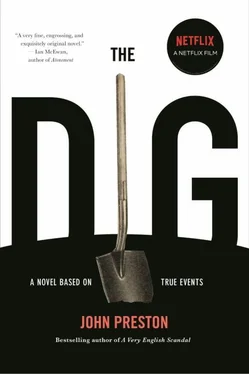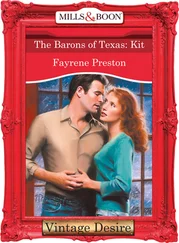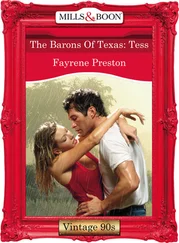“Of course.”
After he had gone, I remained in bed for a few minutes, flattening the sheet across my stomach, before getting up and dressing.
Driving down towards the estuary, everything looked smaller and more compact than before — the buildings, the streets, even the people. As if they had already shrunk into themselves to try to fend off assault. Beyond Melton and before the fork to Sutton, the road runs straight for several hundred yards. On the left-hand side are fields of sedge grass. On the right, mud flats with a few petrified oaks jutting out of them.
When I reached this stretch, I took my hands off the steering wheel. I did so quite without premeditation or thought to the consequences. The car drifted towards the center of the road, but stuck to its course.
As it gained speed, it seemed to be straining to take to the air, the stubby black bonnet rising like a prow before me. A cyclist went by in the opposite direction, his head down, unaware of any danger. Still I let the car carry me wherever it wished. I felt no fear, only a sense of being untethered, of hanging suspended between one realm and another. Sometimes I feel that the dead are more alive than the living, and that this life is just a preparation for another one, long gone by.
Just before the fork in the road, I grabbed hold of the steering wheel and swung it around. With a lurch of the chassis, the car rounded the bend, then began climbing the hill that leads to Sutton Hoo House.
Before we went any further with the excavation, Phillips wanted everything we had already found to be properly packaged up in order to be sent down to London. We needed something that was both soft and durable to pack the finds in. Newspaper did not afford enough protection, while straw and strips of burlap were too abrasive. I didn’t like to mention it at first — I thought Phillips might scoff at the idea — but when I suggested that the moss in the wood might prove ideal, he agreed it was worth a try.
I volunteered to go to the wood and collect some. As soon as I’d done so, Robert jumped up and said he wanted to come too. After asking me if I minded, Mrs. Pretty said that he could. As we set off, Robert slipped his hand into mine. He did so as if it was the most natural thing in the world. I felt the small bunch of his fingers, wrapped in my own.
The moment we stepped into the wood, the air grew cooler. The sunlight, filtered through the leaves, bathed everything in soft green light. We made our way down the slope to where Robert said the moss was at its thickest. This turned out to be at its bottom edge, where the trees were more thinly spaced than they were up above.
One of the men — Mr. Spooner — had kindly lent me a pruning knife. It was with surprising ease, as well as an enormous sense of satisfaction, that I was able to hack at the moss, tearing it up by its roots and lifting it out in large squares. These squares, I found, could then be rolled up, or even folded over.
Robert helped me, stacking up the moss into piles. It wasn’t long before the two of us had laid waste a large area, turning it from green to brown. As we were working away, Robert told me that he had spent the night with the treasure underneath his bed. His mother had allowed him to keep it there on the understanding that he must not, under any circumstances, open the boxes — a condition he had managed to abide by, but only with the greatest difficulty.
“This is terribly exciting, isn’t it?” I said. “It’s just like something out of Treasure Island .”
“I don’t know. I haven’t read Treasure Island .”
“I’m sure you’d like it. I certainly did, although it was supposed to be for boys. But then I always preferred boys’ books when I was your age. There are lots of pirates and fighting. And a big chest full of treasure.”
“Is there a buried boat?”
“No, but there’s a desert island and a man with a long beard. He’s called Ben Gunn.”
Together we pulled up another square of moss. A host of black beetles ran about, trying to escape the sudden intrusion of daylight.
“Is it worth a lot of money?” Robert asked.
“Is what worth a lot of money?”
“The treasure, of course.”
“Oh, yes,” I said. “A great deal of money. I don’t think there’s any doubt about that.”
“How much money?”
“Well, that might be quite difficult to work out. There’s nothing to compare it to, you see.”
“More than a hundred pounds?”
“Definitely more than a hundred pounds,” I told him.
“More than a thousand?”
“I would say definitely more than a thousand too.”
He laughed uncertainly, as if he found this impossible to believe.
“But it’s not just its value that’s important,” I went on. “What’s even more exciting is that it comes from a time when everyone thought that people had become very primitive. From the Dark Ages. That’s why they’re called the Dark Ages, you see. Because people were thought to have slid back into darkness. You know about the Romans, don’t you, Robert?”
“They had centurions. And legionaries.”
“Exactly. Well, after the Romans left Britain in around AD 400, it was thought that instead of going forward and becoming more clever, people went backwards. They practically became like cavemen again. But this proves they didn’t do that at all. If they were capable of making jewelry like the pieces we discovered, they must have been much more clever than anyone ever dreamed of. So, it’s very exciting indeed. One of the most exciting things that could ever have happened, in fact.”
“And is it ours?”
“How do you mean?”
“Does it belong to Mummy and me?”
“I don’t know,” I said. “And I’m afraid I don’t know how they decide that either.”
“But it was found on Mummy’s land, wasn’t it?”
“That’s right.”
“Well, then, it must belong to us.”
“Yes…” I said. “Yes, it probably does. Why don’t we take some of this moss back? We must have cut more than enough by now.”
Standing up, I saw an enormous silver object floating in the sky over Woodbridge. It was roughly cylindrical in shape. On one end were what looked like fins. The other end was pointing downwards. While I watched, a second silver object rose steadily yet clumsily into the air beside it. When this had reached the same height as the first, it stopped.
Without my asking, Robert said, “Barrage balloons. Mr. Jacobs told me about them.”
“What are they for?”
“To stop enemy aircraft. They’re supposed to fly into them and then fall to the ground.”
I couldn’t help thinking that the chances of this happening looked extremely unlikely, although I didn’t say so. I put my arm around Robert’s shoulders and together we stood watching as the two balloons swayed apart and then bumped into one another, partly crumpling as they did so.
Picking up armfuls of cut moss, we began to climb back up the slope. As we did so, I felt suddenly as if the ground we were walking on was as thin and fragile as the crusted sand inside the boat. As if it might give way beneath our feet at any moment and the two of us would tumble into a black abyss.
Halfway up the slope, we passed a small clearing. A khaki-colored bell tent had been pitched in it. The flap was tied back and the guy ropes fanned out all round. Inside, I could see a sleeping bag as well as some clothes scattered about. This, said Robert, was where Mrs. Pretty’s nephew, Rory, was staying.
“Isn’t he allowed indoors?” I asked, remembering what Phillips had said and wondering if Mrs. Pretty had some deep-seated aversion to houseguests.
He started to laugh. “It’s not that, silly. He likes being here.”
Читать дальше












